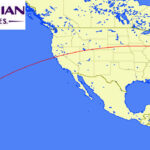Discovering flies buzzing around your kitchen can be more than just a nuisance; it’s a sign that something needs your attention. These unwelcome guests are not only irritating but can also spread bacteria and contaminate food. Understanding how to eliminate them and prevent their return is crucial for maintaining a clean and healthy kitchen environment. This guide provides straightforward, effective steps to help you reclaim your kitchen from flies and keep them away for good.
Step 1: Eliminate the Food Source – The Foundation of Fly Control
Flies are primarily attracted to kitchens because of the readily available food sources. Your first and most crucial step in getting rid of them is to meticulously remove these attractants.
Empty Trash and Remove Food Debris
The kitchen trash can is often a prime breeding ground for flies, especially if it contains food waste. Organic materials, including fruit peels, vegetable scraps, bread crumbs, and any unsealed food items, are irresistible to flies. Even seemingly insignificant spills and crumbs can attract them.
(Alt: Open kitchen trash can overflowing with food scraps, attracting flies)
Make it a habit to empty your kitchen trash can daily, and even more frequently if you’ve disposed of particularly attractive items like meat or fruit waste. Use trash bags that seal properly to contain odors and prevent flies from accessing the contents.
Beyond the main trash can, consider any other potential sources of food debris. Check fruit bowls for overripe produce, clean up spills immediately, and don’t leave dirty dishes sitting in the sink. Remember, “organic material,” as the original article aptly points out, encompasses any food, drink, or edible substance – even seemingly minor residues can be a feast for flies.
Clean Your Refrigerator and Pantry
Spoiled food in your refrigerator is another significant fly attractant. Regularly inspect your fridge and discard any expired or rotting items. Pay close attention to forgotten leftovers, wilted vegetables, and fruits that have gone bad. Clean up any spills or sticky residues inside the refrigerator to eliminate potential food sources.
Extend this cleaning effort to your pantry. Check for open packages of food, spilled grains or sugar, and any signs of food spoilage. Ensure all pantry items are stored in airtight containers to prevent access by flies and other pests.
Deep Clean Your Trash Cans
Simply emptying the trash is not always enough. Trash cans themselves can harbor food residue and fly eggs. Regularly clean your trash cans, both indoor and outdoor, to eliminate these hidden sources.
(Alt: Person cleaning a plastic kitchen trash can in a shower with soap and water)
A thorough cleaning involves washing the trash cans with hot, soapy water. For stubborn residues, allow the cans to soak for a while before scrubbing. Pay attention to the bottom and sides of the cans where food particles can accumulate. After washing, ensure the trash cans are completely dry before placing a new bag inside. This eliminates moisture, which can also attract flies.
Step 2: Freakish Sterilization – Targeting Fly Eggs and Residue
Once you’ve tackled the obvious food sources, it’s time for a more intensive cleaning to eliminate fly eggs and any remaining microscopic food particles that might be sustaining them. This “freakish sterilization,” as the original article playfully calls it, goes beyond regular cleaning and aims for a truly food-sterile kitchen environment.
Deep Cleaning Kitchen Surfaces
Flies can lay eggs in tiny crevices and on surfaces contaminated with food residue. Thoroughly clean all kitchen surfaces, including countertops, sinks, stovetops, and floors. Use a strong cleaning solution to wipe down all areas, paying particular attention to corners, edges, and behind appliances.
Don’t neglect areas that are often overlooked, such as backsplashes, grout lines, and under the edges of countertops. These areas can trap food particles and provide breeding grounds for flies.
Appliance Cleaning: Oven and Microwave
Ovens and microwaves are notorious for accumulating food splatters and residues. Clean your oven regularly to remove baked-on food debris. Wipe down the interior of your microwave after each use and perform a more thorough cleaning weekly to eliminate any lingering food particles.
Address Oily Residue and Hidden Food Sources
Be particularly vigilant about oily residues, especially if you frequently fry food. Oil splatters can attract flies and are often missed during regular cleaning. Use a degreaser to clean areas prone to oil buildup, such as around the stovetop and behind the range hood.
Look for hidden food sources that might be contributing to the fly problem. Check under and behind appliances like refrigerators and stoves for dropped food or spills. Clean these areas thoroughly to eliminate any potential fly attractants.
Bonus Tips for Long-Term Fly Prevention
Maintaining a fly-free kitchen is an ongoing effort. Incorporate these preventative measures into your routine to keep flies away in the long run:
Eliminate Water Sources
Flies also need water to survive. Repair any leaky faucets or pipes in your kitchen. Wipe up spills promptly and avoid leaving standing water in sinks or on countertops. Keep sink drains clean as they can also be a source of moisture and food particles.
Adopt Regular Cleaning Habits
Consistent cleaning is key to preventing fly infestations. Make it a habit to clean up spills and crumbs immediately, empty the trash daily, and regularly clean your kitchen surfaces and appliances. The more consistently you maintain a clean kitchen, the less attractive it will be to flies.
Consider Fly Traps (As a Supplement)
While eliminating food sources is the primary solution, fly traps can be a useful supplementary tool, especially for catching any remaining flies. There are various types of fly traps available, from sticky paper to liquid baits. Place traps strategically in areas where you’ve seen flies, but remember that traps are most effective when used in conjunction with thorough cleaning and source removal.
By following these comprehensive steps, you can effectively get rid of flies in your kitchen and establish habits that prevent them from returning. A clean and food-sterile kitchen is the best defense against these pesky intruders, ensuring a healthier and more pleasant home environment.

